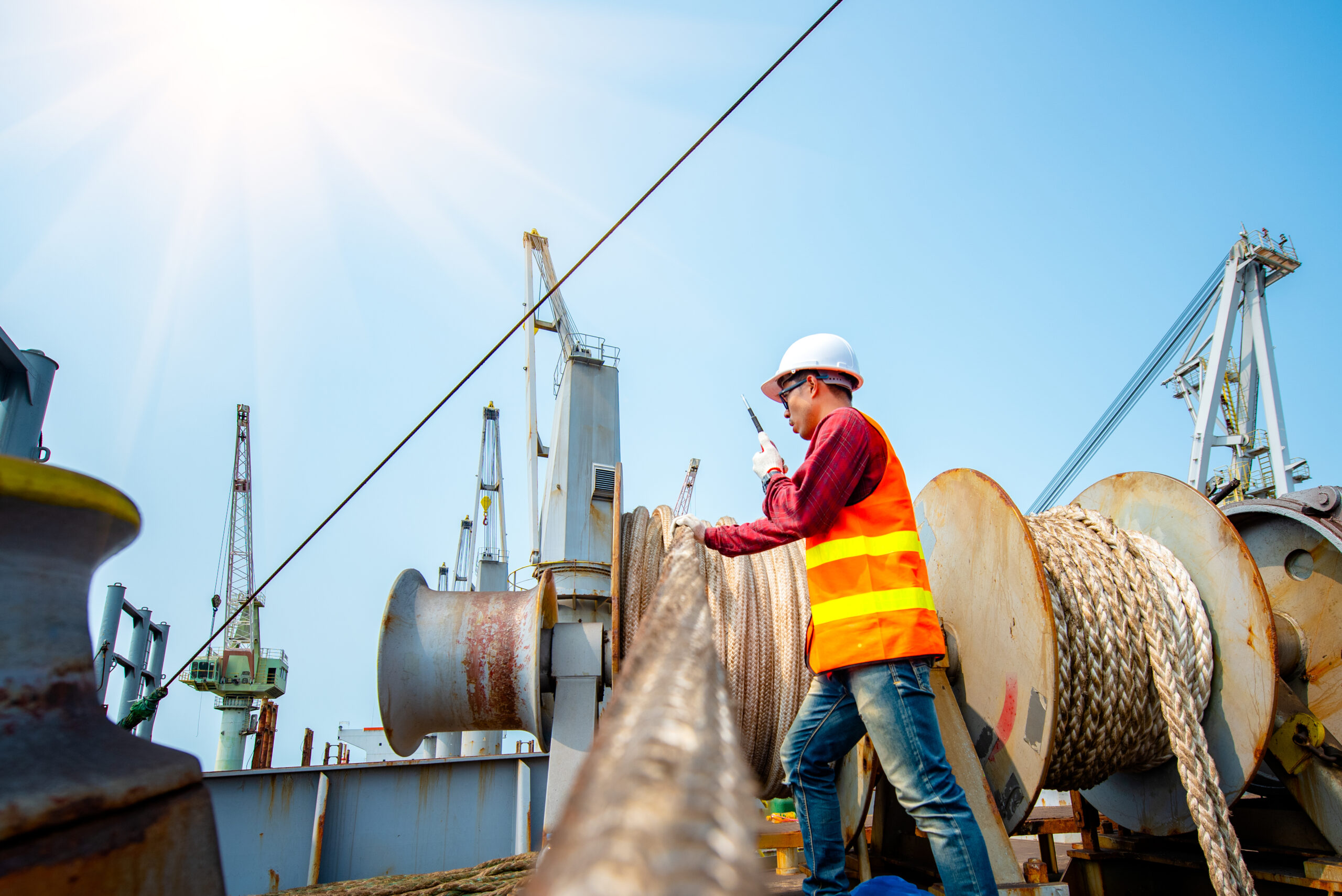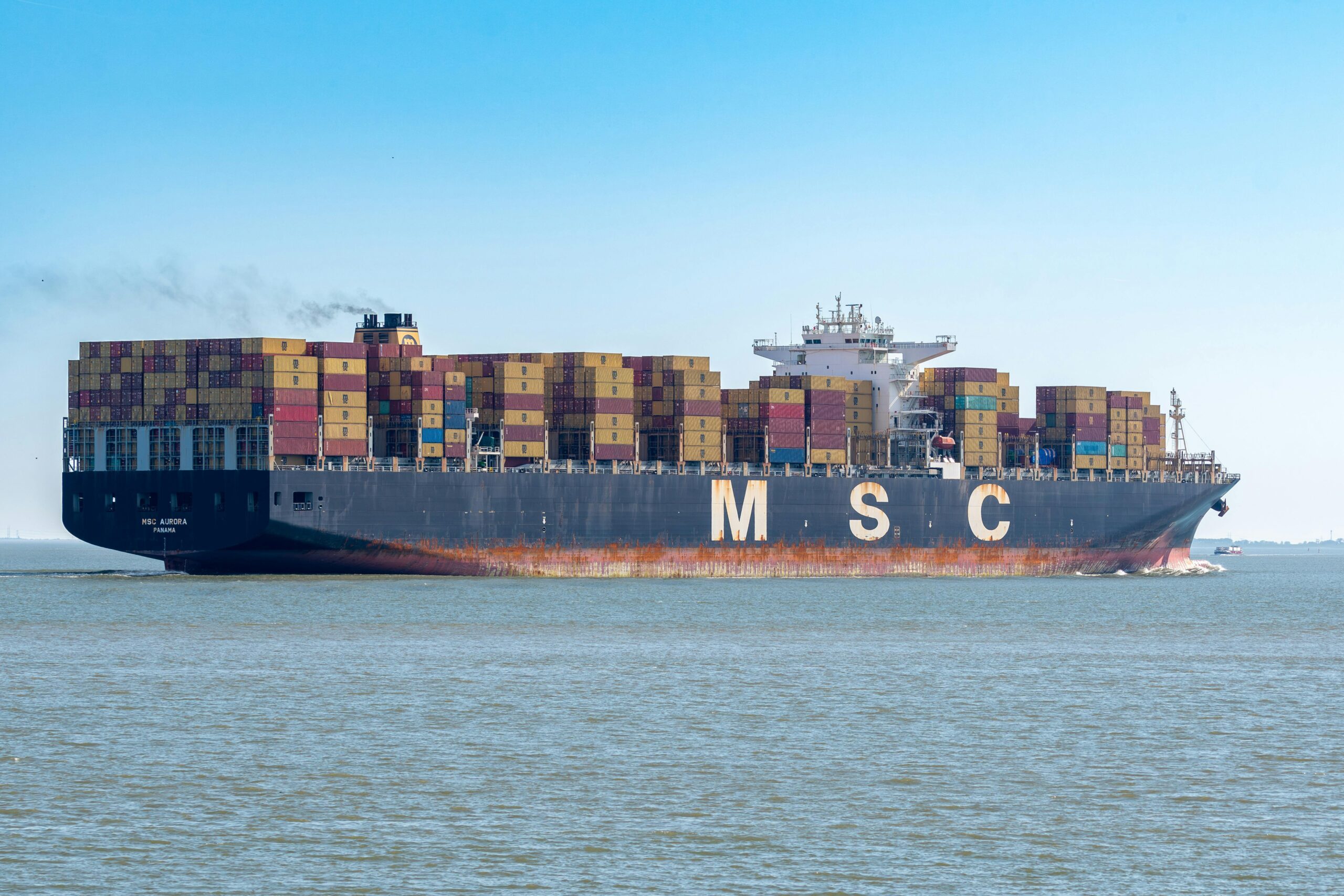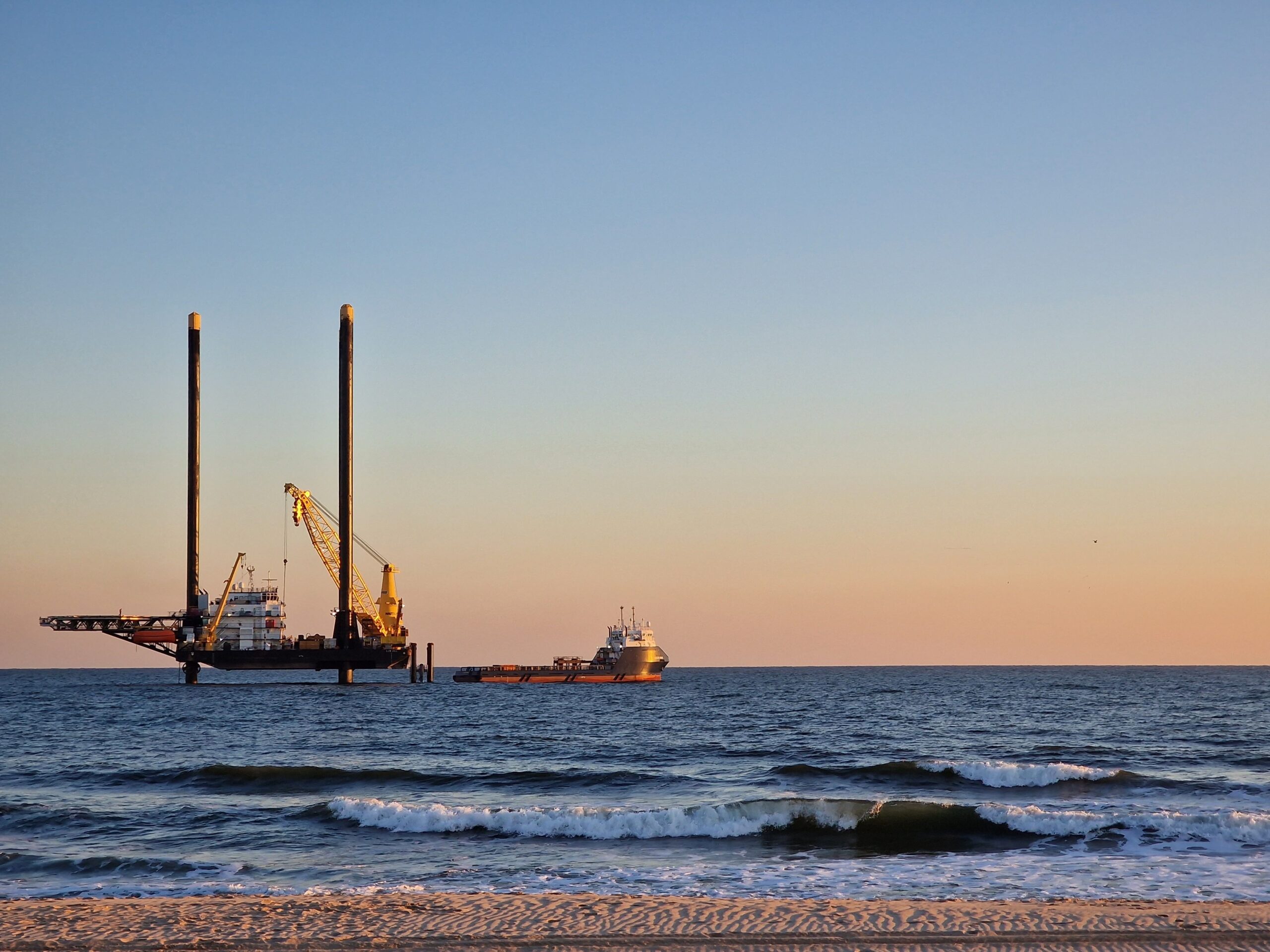In the vast expanse of the world’s oceans and waterways, maritime workers face unique challenges that most land-based workers would never encounter. From weather conditions and treacherous seas to complicated machinery operations, maritime workers grapple with elements that require a specialized knowledge base.
The crews that operate commercial fishing vessels, cargo ships, offshore oil platforms, barges, cruise ships, tugboats, and all maritime vessels must be properly trained not only on how to perform their job duties but also on what to do in the event of an emergency. This includes man overboard incidents, hurricane response, fires, falls, explosions, fatigue, and more. At sea, where access to emergency services is limited, proper training can make all the difference.
Safety training in the maritime sector isn’t just crucial—it’s a matter of life and death.
Man Overboard Incidents
Arguably one of the most feared and life-threatening incidents in maritime work is a man overboard situation. Due to the sheer size of most vessels and the isolating vastness of the oceans, not to mention sea temperatures, a man overboard incident can quickly turn fatal.
Effective training teaches crew members how to:
- Recognize potential hazards that might cause a man overboard incident.
- Implement preventative measures, including proper use of life jackets and other safety gear.
- Respond swiftly and efficiently should an incident occur, using retrieval techniques and immediate first aid.
Recognizing Signs of Fatigue
Working long hours against the backdrop of the vast, seemingly endless ocean can be mentally and physically taxing. Fatigue can impair judgment, slow reaction times, and reduce the ability to process information—factors that can lead to catastrophic accidents at sea.
Training is vital in helping maritime workers:
- Understand the causes and symptoms of fatigue.
- Recognize fatigue in themselves and others.
- Apply effective countermeasures and ensure adequate rest.
Proper Lockout/Tagout Procedures
Machinery malfunction or unexpected start-ups during maintenance can have grave consequences on ships. The maritime sector, like many industries, requires lockout/tagout procedures to ensure machinery is properly shut down and cannot be restarted unintentionally while it is being cleaned or repaired.
Safety training in this area ensures:
- Workers understand the importance and correct implementation of lockout/tagout procedures.
- Crew members can identify machinery that requires lockout/tagout during maintenance or repair.
- Prevention of unexpected machine operation, protecting workers from catastrophic harm.
Storm Avoidance, Hurricane Preparedness & Evacuation
Storms present a significant challenge for all maritime workers. From rapidly evolving storms to catastrophic hurricanes, seamen and offshore workers must be equipped to handle it all. Comprehensive safety training in storm avoidance, hurricane preparedness, and evacuation is paramount.
Predicting and Avoiding Storms
Modern ships are equipped with meteorological tools, from barometers to satellite communication devices providing real-time weather updates. Training mariners to understand and interpret this data is vital. This includes:
- Weather Routing Services: These services offer optimal routes based on current weather forecasts, enabling vessels to sidestep the worst storm effects.
- Onboard Instruments: With the right training, crew members can leverage onboard meteorological tools to make crucial decisions about adjusting the ship’s course or speed.
- Tapping into Experience: Using historical data and shared experiences can guide decisions, such as avoiding known typhoon corridors during certain seasons.
Preparing for Hurricanes
Storms will come. Offshore operators and maritime employers must employ year-long hurricane preparedness and training plans to protect their vessels, platforms, and crews. This includes:
- Securing all deck equipment to ensure it doesn’t pose an additional danger during turbulent seas.
- Training crews to adjust ballast systems to maintain ship stability during heavy seas.
- Running regular drills to ensure every crew member knows their role if a storm hits.
Evacuation Protocols
Especially relevant for offshore installations or vessels near the shore, knowing when and how to evacuate can be a life-saving decision. Training may include:
- Evacuation procedures, each crew member’s specific role, and muster points.
- Familiarity with lifeboats, life rafts, and other rescue equipment to ensure a quick response during an actual emergency.
- How to effectively communicate with rescue services in order to expedite safe retrievals.
Employer Responsibility: More Than Just a Requirement
Maritime safety training shouldn’t be seen as just another checkbox on a compliance form. It’s an employer’s moral and legal obligation to ensure their crew is prepared for any eventuality. Proper training can mean the difference between a close call and a tragedy. This means:
- Continuously updating training programs to align with evolving safety standards, technological advancements, and emerging threats.
- Investing in quality training resources, including simulators, hands-on exercises, and experienced instructors.
- Fostering a culture where safety is a shared responsibility. Every crew member, regardless of rank or role, should feel empowered to voice concerns and contribute to safer operations.
Maritime work is as rewarding as it is unpredictable. Amidst its beauty lies the potential for danger at every turn. Through comprehensive safety training, maritime workers not only learn to respect these dangers but also to navigate them with skill and confidence. Employers hold the key to this training, and in doing so, they hold the lives of their crew in their hands. As such, the commitment to ongoing, thorough safety education is not only vital—it’s a sacred duty.
###
Since its founding in 2004, Arnold & Itkin has helped America’s hardest workers find justice and get the support they need after the worst offshore accidents, injuries, and losses. The firm’s founding attorneys, Kurt Arnold and Jason Itkin, are known for their tenacity and skill both inside and outside the courtroom. They have taken on the maritime industry’s largest corporations, winning life-changing recoveries for workers and families whose lives have been turned upside down by negligence and wrongdoing. With more than $15 billion in verdicts and settlements, Arnold & Itkin has broken records time and again across the country. Most importantly, they’ve helped clients face better futures.
Tags:

 Join The Club
Join The Club











